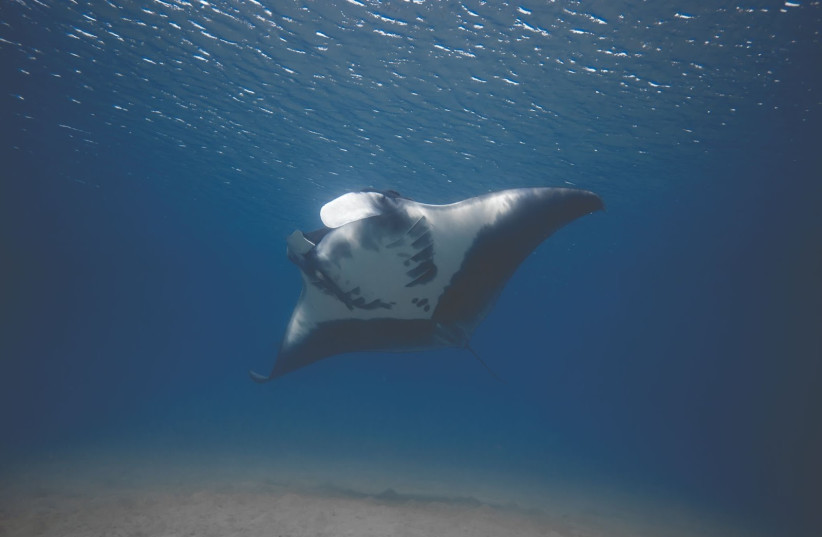Sharks are more in danger from humans than vice versa, according to Assaf Levy, CEO and founder of BioDB.com.
Speaking to The Jerusalem Post in honor of Shark Awareness Day, he said that one-third of sharks and rays are at risk of extinction.
“Sharks and rays belong to a group of fish known as elasmobranchs, which includes over 1,200 species,” Levy explained. “Sharks and rays, in contrast to most fish, have skeletons formed of cartilage rather than bones, which gives them flexibility and helps them move gracefully in the water.
They are not mammals like whales and dolphins; rays and sharks are fish, and scientists are still discovering new species, showing how diverse oceans are.”
Israel is home to diverse marine life, including sharks and rays. However, 78% of shark and ray species in the Red Sea are classified as threatened, including around 40 species on Israel’s coast.
“In the Mediterranean Sea as a whole, it is estimated that 90% of the population was wiped out in the last few decades. Around 50 species occur off our Mediterranean coast, of which half are threatened,” Levy continued.
He said that sharks help maintain the delicate balance of marine ecosystems. As predators, they take out the weak and sick, making other species healthier. Moreover, they scavenge and remove corpses and other organic materials from the environment.

Endangered sea life
On his website, Levy tries to make the concept of extinction accessible to the general public. He started it after working as a computer programmer when he saw a picture of the last rhino of a specific species on social media.
Always a lover of nature, he knew he had to take action.
“A huge portion of our wildlife is retreating,” Levy said. “In the last few decades, we have seen the extinction rate speeding up.”
A new international study that Tel Aviv University scientists contributed to was published in Nature Communications last month, highlighting that at least 900 amphibian and reptile species will become extinct due to climate change in the coming decades.
A separate report, also by TAU scientists, showed that the mass mortality of sea urchins in the Mediterranean has spread to the Gulf of Eilat and threatens to destroy the coral reef.
“There are fewer than 7,000 cheetahs left. There are fewer than 20,000 lions in the wild,” Levy stressed. “We are on the verge here. Unless something dramatic happens, some of these species will only be on Wikipedia, and our kids will talk about them like we talk about dinosaurs.”
Sharks and rays are becoming extinct due to several factors, Levy said. One is overfishing, driven by demand for shark meat, fins and liver oil. Moreover, many sharks and rays are unintentionally captured in large fishing nets, leading to death. Finally, human pollution and climate change impact the seas and the creatures in them.

“In a disheartening turn of events last month, a Shortfin Mako shark was discovered dead along the Caesarea shore,” Levy recalled. “The Shortfin Mako is a highly migratory species known for its impressive speed and agility. Like many of its allies, it is critically endangered in the Mediterranean Sea.”
Levy said, “When we save sharks, we save the whole ecosystem. You take out sharks, and the ecosystem collapses. Humans rely on the sea in many ways. There is no alternative to a healthy, functioning sea; sharks are key to that.”
The Environment and Climate Change portal is produced in cooperation with the Goldman Sonnenfeldt School of Sustainability and Climate Change at Ben-Gurion University of the Negev. The Jerusalem Post maintains all editorial decisions related to the content.
